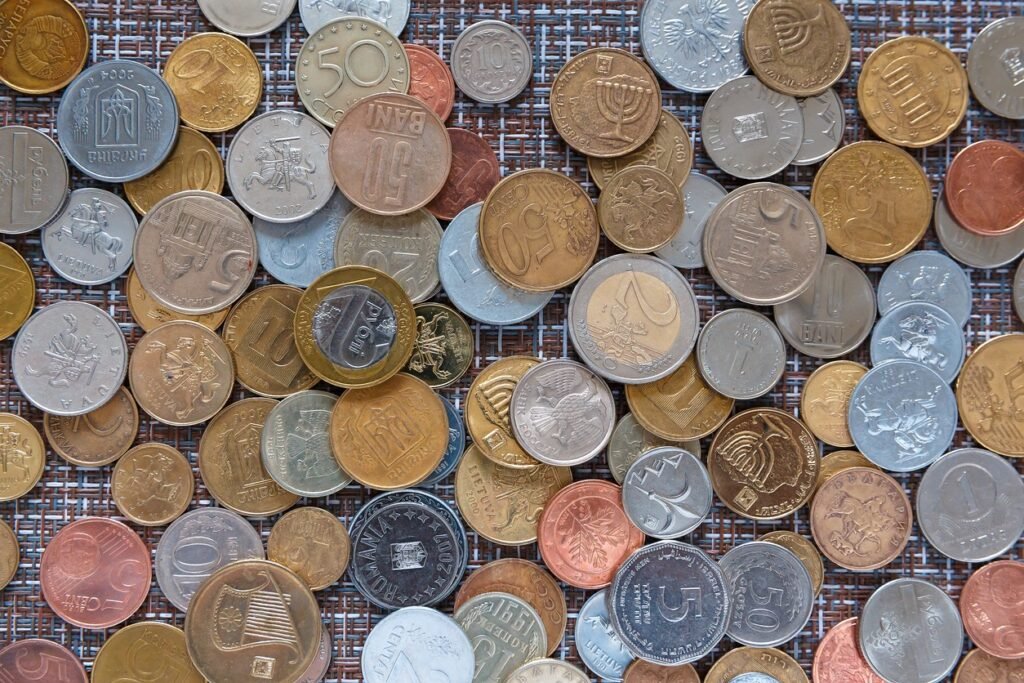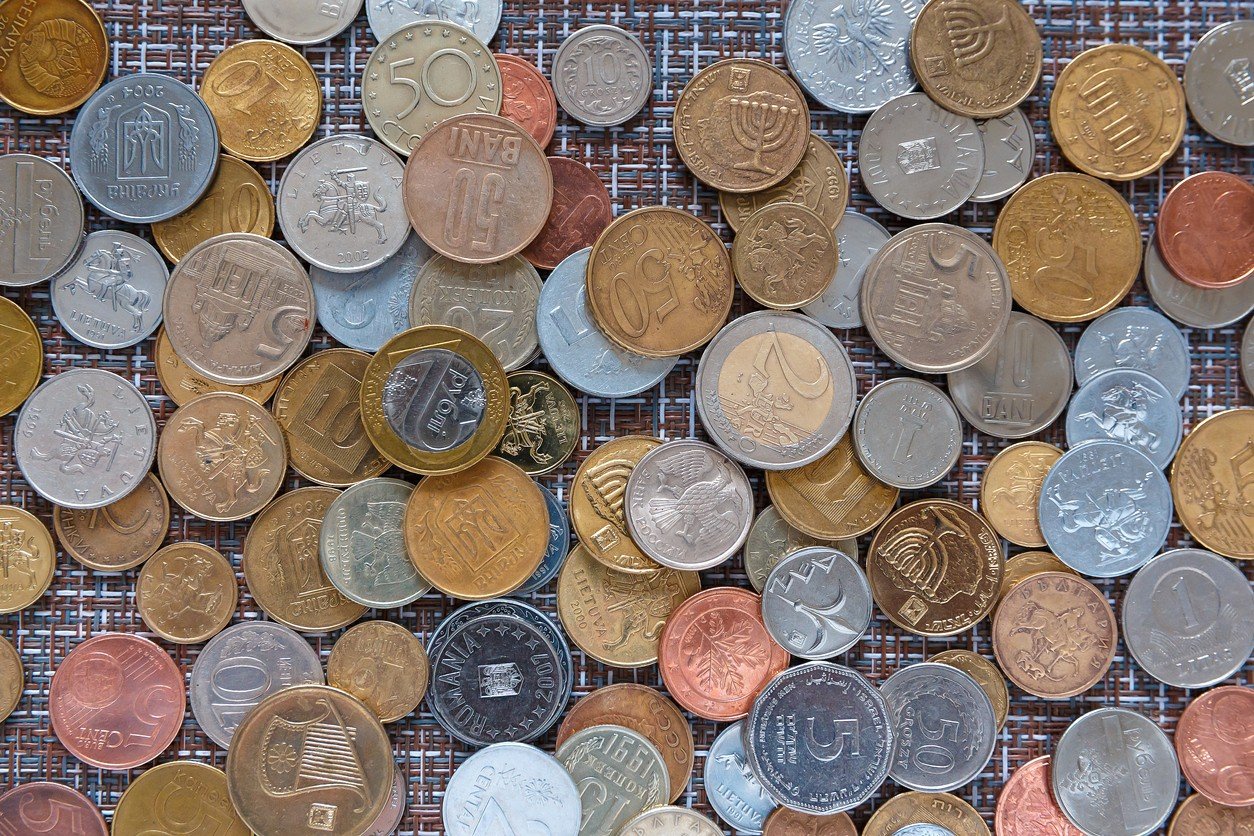Contents
- 1 Table of Contents
- 2 The History of Coin Collecting
- 3 Coyyn.com: A Modern Approach to Rare Coins
- 4 Types of Rare Coins Available on Coyyn.com
- 5 Factors That Affect the Value of Rare Coins
- 6 Investing in Rare Coins: Is It Worth It?
- 7 How to Start Your Coin Collection
- 8 Conclusion
- 9 Frequently Asked Questions (FAQ)
Table of Contents
Coyyn.com rare coins The world of rare coins offers a unique blend of history, culture, and investment potential. Collectors and enthusiasts from around the globe are drawn to these miniature pieces of art, with each coin telling its own story. Whether you’re a novice or an experienced numismatist, rare coins can hold significant value both in monetary terms and historical significance.
One of the key players in this arena is Coyyn.com, a platform dedicated to the sale, acquisition, and education surrounding rare coins. In this article, we’ll explore the intriguing world of rare coins, Coyyn.com’s role, the significance of coin collecting, and answer frequently asked questions about the field.
The History of Coin Collecting
Coin collecting, often referred to as numismatics, has been around for centuries. It is often dubbed “The Hobby of Kings” because it was once reserved for the wealthy and elite. The origins of coin collecting can be traced back to the Renaissance period, particularly in Europe, where rulers like Holy Roman Emperor Maximilian and King Louis XIV of France accumulated large collections of coins.
Key Milestones in Coin Collecting
Renaissance and Early Interest (14th-16th Century)
During the Renaissance, European scholars began to revive classical traditions, including the study of ancient Roman and Greek coins. Collectors often pursued coins for their aesthetic appeal, connection to historical figures, and links to important historical events.
The Modern Era (18th-19th Century)
By the 18th and 19th centuries, coin collecting had become more accessible to the middle class. The establishment of coin clubs, auctions, and the publication of numismatic catalogs helped the hobby gain popularity among the general public. The numismatic community began to take shape, with formal organizations emerging to promote the hobby and establish standards.
The 20th Century and Beyond
The 20th century saw tremendous growth in coin collecting, particularly in the United States. The establishment of the American Numismatic Association (ANA) in 1891 played a pivotal role in spreading interest and knowledge about rare coins. Today, coin collecting is more accessible than ever, thanks to the rise of online platforms like Coyyn.com.
Coyyn.com: A Modern Approach to Rare Coins
Coyyn.com is a digital platform that connects collectors with rare coins from around the world. With an emphasis on authenticity, education, and trust, Coyyn.com has built a reputation as a go-to resource for both seasoned collectors and newcomers alike.
Features of Coyyn.com
A Vast Inventory of Rare Coins
Coyyn.com boasts an extensive collection of rare coins, from ancient civilizations to modern mints. This wide selection includes coins from ancient Greece and Rome, medieval Europe, and rare U.S. currency.
Certification and Authentication
One of the most critical aspects of the rare coin market is the authentication and certification process. Coyyn.com works with reputable third-party grading services such as the Professional Coin Grading Service (PCGS) and Numismatic Guaranty Corporation (NGC) to ensure that each coin is genuine and accurately graded.
Educational Resources
Coyyn.com also offers an array of educational resources for collectors of all levels. These resources include articles, guides, and videos that help collectors understand coin grading, the historical significance of different coins, and tips for building and maintaining a coin collection.

Secure Transactions
One of the biggest challenges in the rare coin market is ensuring that transactions are secure and transparent. Coyyn.com uses advanced encryption technologies and trusted payment methods to protect both buyers and sellers. The platform’s transparency fosters trust and encourages long-term participation in the rare coin market.
Types of Rare Coins Available on Coyyn.com
Rare coins come in many forms, each with unique characteristics and historical significance. Coyyn.com offers a diverse range of coins, categorized based on factors like age, origin, and rarity.
Ancient Coins
Ancient coins are highly sought after due to their historical significance. These coins were minted by ancient civilizations, including the Greeks, Romans, and Persians. Ancient coins often feature depictions of gods, emperors, and significant events, making them a window into the past.
Notable Examples
- Athenian Owl Tetradrachm: A coin from ancient Athens, often regarded as one of the most iconic ancient coins.
- Roman Denarius: A silver coin used during the Roman Republic and Empire, featuring portraits of various emperors and deities.
Medieval Coins
Medieval coins span the period from the fall of the Roman Empire to the Renaissance. These coins often feature crude designs but are highly prized for their rarity and historical value.
Notable Examples
- English Pennies: Coins from the Anglo-Saxon period, including those minted during the reign of King Edward I.
- Byzantine Solidus: A gold coin minted by the Byzantine Empire, known for its durability and stability in the ancient world.
U.S. Coins
Rare U.S. coins have a large following, especially coins from the 19th and early 20th centuries. Many of these coins are highly sought after due to their historical significance and limited mintages.
Notable Examples
- Draped Bust Dollar (1795-1804): One of the earliest U.S. coins, featuring a portrait of Lady Liberty.
- Saint-Gaudens Double Eagle (1907-1933): A gold coin designed by the famous sculptor Augustus Saint-Gaudens, often considered one of the most beautiful U.S. coins.
Factors That Affect the Value of Rare Coins
The value of a rare coin is influenced by several factors. Understanding these factors is crucial for anyone looking to invest in or collect rare coins.
1. Rarity
Rarity is one of the most significant factors in determining a coin’s value. A coin that was minted in limited numbers or that has survived in small quantities is considered rare and is typically more valuable.
2. Condition (Grading)
The condition of a coin, often referred to as its grade, is another critical factor in determining its value. Coins are graded on a scale from 1 (poor) to 70 (perfect) using the Sheldon Coin Grading Scale. Higher-grade coins are typically more valuable.
3. Historical Significance
Coins associated with significant historical events or figures often carry a premium. For example, coins minted during times of war or featuring famous leaders can be highly prized by collectors.
4. Metal Content
The precious metal content of a coin—whether it’s made of gold, silver, or platinum—also affects its value. Coins made of higher-value metals generally carry a premium based on the current market price of the metal.
5. Demand and Market Trends
Like any market, the value of rare coins can fluctuate based on supply and demand. Certain coins may be highly sought after by collectors, driving up their value, while others may see a decrease in demand over time.
Investing in Rare Coins: Is It Worth It?
Many people turn to rare coins as a form of investment, seeing them as a hedge against inflation and a way to diversify their portfolios. While rare coins can indeed appreciate in value, investing in them requires careful research and a long-term perspective.
Pros of Investing in Rare Coins
- Tangible Asset: Rare coins are physical assets, unlike stocks or bonds, which can provide a sense of security.
- Historical and Aesthetic Appeal: Beyond their monetary value, rare coins are often appreciated for their beauty and connection to history.
- Potential for Long-term Gains: Certain rare coins have shown impressive appreciation over time, making them attractive to investors.
Cons of Investing in Rare Coins
- Illiquid Market: The rare coin market can be illiquid, meaning that it may take time to find a buyer for a particular coin.
- Requires Expertise: Investing in rare coins requires a good understanding of numismatics, as well as knowledge of market trends.
- Market Volatility: The value of rare coins can fluctuate, and there is no guarantee that a coin will increase in value over time.
How to Start Your Coin Collection
Starting a coin collection can be a rewarding and educational experience. Whether you’re collecting for investment purposes or simply as a hobby, here are some tips to help you get started.
1. Start with a Focus
Many successful collectors start by focusing on a particular type of coin, such as U.S. coins, ancient coins, or coins from a specific historical period. This focus allows you to build specialized knowledge and a cohesive collection.
2. Educate Yourself
Education is key when it comes to coin collecting. Take the time to read books, attend numismatic events, and explore online resources like Coyyn.com’s educational materials. Understanding the basics of coin grading, history, and market trends will help you make informed decisions.
3. Set a Budget
It’s important to set a budget when starting your collection. Rare coins can range in price from a few dollars to millions of dollars, so having a clear idea of what you’re willing to spend can help you avoid overpaying or making impulsive purchases.
4. Buy from Reputable Sources
Always buy rare coins from reputable dealers or platforms like Coyyn.com. Look for sellers who offer authenticated coins and provide a transparent purchasing process. This will help ensure that you’re getting a genuine product.
5. Protect Your Collection
Proper storage is essential for preserving the value of your coins. Store them in a cool, dry place, and use coin holders or cases to protect them from damage. Avoid handling coins with your bare hands, as oils from your skin can cause corrosion over time.
Conclusion
Coyyn.com rare coins Rare coins offer a fascinating glimpse into history while providing collectors with the opportunity to own a piece of the past. Whether you’re collecting for pleasure or investment, platforms like Coyyn.com provide a trustworthy and convenient way to engage with this timeless hobby. As you dive deeper into the world of numismatics, you’ll find that each coin has its own unique story, waiting to be discovered.
Frequently Asked Questions (FAQ)
What is the most valuable rare coin?
The value of rare coins can vary greatly depending on rarity, condition, and demand. One of the most valuable coins ever sold is the 1933 Saint-Gaudens Double Eagle, which fetched $18.9 million at auction in 2021.
How can I tell if a coin is rare?
Several factors determine a coin’s rarity, including its mintage, age, and historical significance. Consulting a professional numismatist or using a platform like Coyyn.com for expert grading and evaluation is the best way to determine a coin’s rarity.
Should I clean my rare coins?
No, you should never clean a rare coin. Cleaning can damage the surface of the coin and reduce its value. Collectors and dealers prefer coins in their natural state, including any patina that may have developed over time.
What is the best way to store rare coins?
Rare coins should be stored in a cool, dry environment away from direct sunlight. Use protective cases or holders to prevent physical damage, and handle coins with gloves to avoid transferring oils from your skin.
Can I invest in rare coins through Coyyn.com?
Yes, Coyyn.com offers a range of rare coins that are suitable for both collectors and investors. They provide certification and authentication services to ensure the authenticity of each coin, helping investors make informed decisions.





